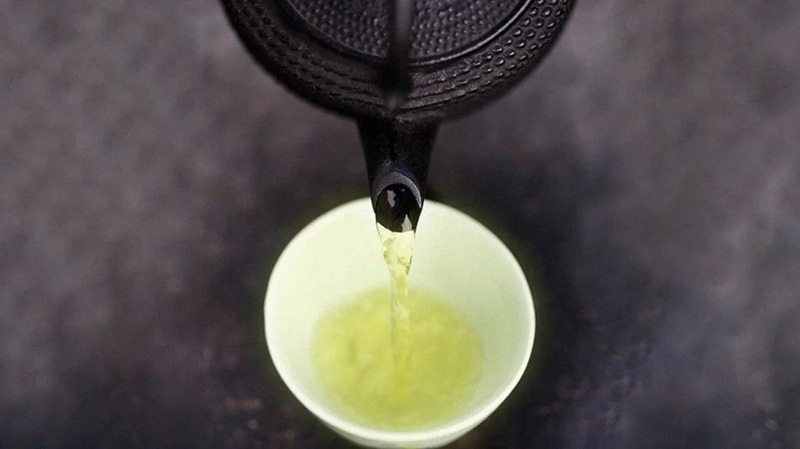Content Menu
● What is Green Tea Extract?
● Health Benefits of Green Tea Extract
● How to Take Green Tea Extract
● Potential Side Effects
● Who Should Avoid Green Tea Extract?
● Scientific Evidence Supporting Green Tea Extract Benefits
● Additional Considerations When Taking Green Tea Extract
● Lifestyle Factors That Enhance Benefits
● Final Thoughts
● Conclusion
● FAQ
>> 1. Is green tea extract safe for everyone?
>> 2. Can I take green tea extract on an empty stomach?
>> 3. How much green tea extract should I take daily?
>> 4. What are the potential side effects of taking green tea extract?
>> 5. Can green tea extract help with weight loss?
● Citations:
Green tea extract has gained popularity as a dietary supplement due to its potential health benefits. Derived from the leaves of the *Camellia sinensis* plant, green tea extract is rich in antioxidants, particularly catechins, which are believed to contribute to various health improvements. However, before incorporating green tea extract into your routine, it's essential to understand its benefits, potential side effects, and appropriate usage guidelines.

What is Green Tea Extract?
Green tea extract is a concentrated form of green tea that retains the beneficial compounds found in the leaves. It is available in various forms, including capsules, powders, and liquid extracts. The primary active ingredient in green tea extract is epigallocatechin gallate (EGCG), which is known for its strong antioxidant properties.
Health Benefits of Green Tea Extract
Numerous studies have suggested various health benefits associated with green tea extract:
- Weight Loss: Green tea extract may aid in weight loss by increasing metabolism and fat oxidation. Some studies have shown that it can help reduce body fat, especially in the abdominal area. A systematic review indicated that supplementation with green tea extract significantly reduced body mass index (BMI), body fat percentage (BFP), and waist circumference[1].
- Heart Health: Regular consumption of green tea extract has been linked to improved heart health. It may help lower cholesterol levels and reduce blood pressure, thus decreasing the risk of cardiovascular diseases. Research suggests that green tea supplementation can lead to significant reductions in total cholesterol and low-density lipoprotein (LDL) levels[10].
- Cancer Prevention: While research is ongoing, some studies suggest that the antioxidants in green tea extract may help protect against certain types of cancer by reducing oxidative stress and inflammation. EGCG has been shown to inhibit cancer cell proliferation and induce apoptosis in various cancer models[4].
- Brain Health: The catechins in green tea extract may also support brain health by protecting neurons from damage and improving cognitive function. Studies indicate that EGCG can suppress neurotoxicity related to Alzheimer's disease and promote autophagy, which helps maintain cellular health[6].
- Skin Health: Green tea extract is often used in skincare products due to its anti-inflammatory properties and ability to protect against UV damage. It has been shown to reduce signs of aging and improve skin elasticity[9].
How to Take Green Tea Extract
When considering taking green tea extract, it's crucial to follow recommended dosages:
- Dosage: The typical dosage ranges from 250 mg to 500 mg per day. However, it's essential to consult with a healthcare provider for personalized recommendations based on individual health needs.
- Timing: Taking green tea extract with food may help reduce the risk of gastrointestinal side effects. Avoid taking it on an empty stomach.
- Forms: Choose high-quality supplements from reputable brands to ensure safety and efficacy.
Potential Side Effects
While green tea extract is generally safe for most people when taken in moderation, there are potential side effects to consider:
- Gastrointestinal Issues: Some individuals may experience nausea, diarrhea, or abdominal pain.
- Liver Damage: High doses of green tea extract have been associated with liver toxicity. Symptoms may include yellowing of the skin or eyes, nausea, and abdominal pain. If these symptoms occur, discontinue use immediately and consult a healthcare professional[5].
- Caffeine Sensitivity: Green tea extract contains caffeine, which can lead to anxiety, insomnia, or increased heart rate in sensitive individuals.

Who Should Avoid Green Tea Extract?
Certain individuals should exercise caution or avoid green tea extract altogether:
- Pregnant or Nursing Women: Due to its caffeine content and potential effects on fetal development.
- Individuals with Liver Conditions: Those with pre-existing liver issues should avoid high doses of green tea extract.
- People Taking Certain Medications: Green tea extract can interact with medications such as blood thinners and some antidepressants. Always consult a healthcare provider before starting any new supplement.
Scientific Evidence Supporting Green Tea Extract Benefits
Recent studies have provided further insights into the efficacy of green tea extract:
1. Weight Management: A study involving women with central obesity showed that high-dose EGCG supplementation resulted in significant weight loss over 12 weeks without notable side effects[8]. This highlights the potential role of green tea extract as an adjunctive treatment for obesity management.
2. Cardiovascular Risk Factors: Another meta-analysis indicated that participants who consumed green tea supplements experienced improvements in lipid profiles, including reductions in total cholesterol and LDL levels[10]. These findings support the cardiovascular protective effects attributed to the antioxidant properties of catechins.
3. Cancer Research: The anticancer properties of EGCG have been extensively studied. Research indicates that EGCG can inhibit cancer cell growth through various mechanisms such as inducing apoptosis and inhibiting angiogenesis[4]. This positions green tea extract as a potential complementary approach in cancer prevention strategies.
4. Neuroprotection: Studies suggest that EGCG can protect against neurodegenerative diseases by reducing oxidative stress and promoting brain health[6]. Its ability to modulate pathways involved in neuroinflammation makes it a candidate for further exploration in cognitive health interventions.
Additional Considerations When Taking Green Tea Extract
When considering adding green tea extract to your diet or supplement regimen, it's important to keep several factors in mind:
- Quality Matters: Not all supplements are created equal; therefore, selecting products from reputable manufacturers is critical for ensuring purity and potency. Look for third-party testing certifications that verify the product's contents.
- Monitor Your Body's Response: As with any supplement, individual reactions can vary widely based on personal health status and genetic factors. It's advisable to start with a lower dose and gradually increase it while monitoring any changes or adverse reactions.
- Hydration is Key: Caffeine-containing supplements like green tea extracts can contribute to dehydration if not balanced with adequate water intake. Ensure you maintain proper hydration throughout your day.
- Dietary Balance: While supplements can provide additional benefits, they should not replace a balanced diet rich in whole foods like fruits, vegetables, whole grains, lean proteins, and healthy fats—these foods provide a wide range of nutrients necessary for overall health.
Lifestyle Factors That Enhance Benefits
Incorporating lifestyle changes alongside taking green tea extract can amplify its benefits:
- Regular Exercise: Engaging in regular physical activity enhances metabolic rates and supports weight management efforts when combined with supplements like green tea extract[3]. Aim for at least 150 minutes of moderate aerobic activity each week along with strength training exercises twice weekly.
- Mindful Eating Practices: Adopting mindful eating habits—such as paying attention to hunger cues—can contribute significantly toward achieving weight loss goals when combined with supplementation efforts.
- Stress Management Techniques: Chronic stress negatively impacts health outcomes; therefore practices like yoga or meditation can help mitigate stress levels while promoting overall well-being.
Final Thoughts
In summary, while there are promising benefits associated with taking green tea extracts—from weight management support through cardiovascular protection—individual considerations must always be taken into account before starting any new supplement regimen. Consulting healthcare professionals ensures tailored advice based on personal medical history while maximizing safety during supplementation efforts.
Conclusion
Green tea extract can offer numerous health benefits when taken responsibly. Its antioxidant properties make it a popular choice for those looking to improve their overall wellness. However, it's essential to be aware of potential side effects and consult with a healthcare professional before starting supplementation. By understanding how to use green tea extract safely and effectively, you can harness its benefits while minimizing risks.

FAQ
1. Is green tea extract safe for everyone?
While generally safe for most people when taken in moderation, individuals with liver conditions or those pregnant should avoid it. Always consult a healthcare provider before starting any new supplement.
2. Can I take green tea extract on an empty stomach?
It's advisable not to take green tea extract on an empty stomach as it may increase the risk of gastrointestinal side effects. Taking it with food can help mitigate this risk.
3. How much green tea extract should I take daily?
The typical dosage ranges from 250 mg to 500 mg per day. However, individual needs may vary; consult a healthcare provider for personalized recommendations.
4. What are the potential side effects of taking green tea extract?
Common side effects include gastrointestinal issues like nausea and diarrhea. High doses may lead to liver toxicity and caffeine-related symptoms such as anxiety or insomnia.
5. Can green tea extract help with weight loss?
Yes, some studies suggest that green tea extract can aid weight loss by increasing metabolism and fat oxidation; however, results can vary among individuals.
Citations:
[1] https://pubmed.ncbi.nlm.nih.gov/38031409/
[2] https://www.rxlist.com/green_tea/generic-drug.htm
[3] https://www.psu.edu/news/research/story/research-suggests-green-tea-exercise-boost-weight-loss-health
[4] https://pmc.ncbi.nlm.nih.gov/articles/PMC7084675/
[5] https://pmc.ncbi.nlm.nih.gov/articles/PMC3746392/
[6] https://pmc.ncbi.nlm.nih.gov/articles/PMC6412948/
[7] https://www.webmd.com/vitamins/ai/ingredientmono-960/green-tea
[8] https://pubmed.ncbi.nlm.nih.gov/26093535/
[9] https://kneopen.com/KnE-Medicine/article/view/11077/
[10] https://www.frontiersin.org/journals/nutrition/articles/10.3389/fnut.2022.1084455/full






























